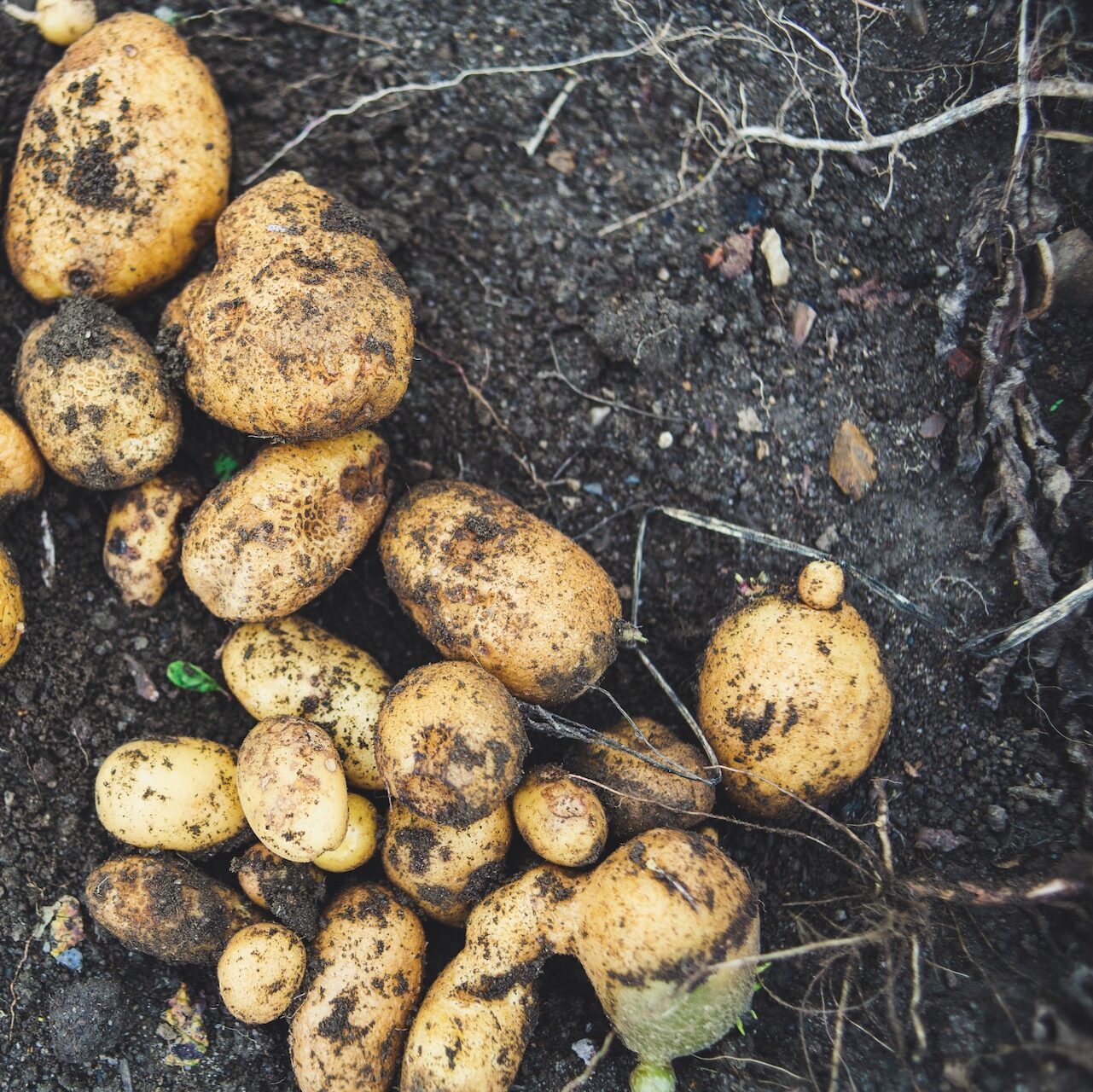
The potatoes came out of the compost pile thick-limbed and determined, looking almost like tomatoes, given their height. You shook your head. “Once there are potatoes, there’s always potatoes.”
I liked the infinity of this. I thought Beget! The potatoes are begetting more potatoes! I thought of who would live in the little house after me, their wonder at the potatoes and the potatoes wondering at them. I liked the idea of this happening: someone happening upon a stock of potatoes behind their new home, the potatoes thriving amongst the begonias and spiderwort: a little secret. A stable, trustable thing. How fickle we must seem to the potatoes, how entitled to new perspectives and whims. Potatoes only want to stay.
The potatoes could have come from anywhere. Admittedly, I am not someone who shops only at the farmers’ market. I am not someone who uses all of the food they buy. That’s why I started the compost pile: not to simply throw away the potatoes sprouting eyes but to compost. I had no idea those withered store-bought potatoes would actually grow. Imagine my surprise when they took off the way they did.
It started so slowly. A leak in the basement. The dog’s ball rolling across the floor. I thought seismic shift. I thought this house does have strange, old bones. I did not think the potatoes. I did not think so many potatoes have begun to sprout beneath my home that the house’s very foundation has cracked and lifted. The potatoes began curling against the window, and through it.
When you and I returned from our camping trip, the potatoes had begun to settle into my mattress. The power was off, the faucet running. They set up an aquaponic system; they had grown wise enough to water themselves. My bills were in the thousands. The walls said, “Our bills,” but it was not the walls that said it— it was the potatoes growing inside them. The potatoes that had established themselves in my bookshelf had picked up English, then Latin, and then coding. They read the Proust novels I never had. They debated melodrama and ethics in A Little Life. These potatoes taught the others what they’d learned, and then they transferred all of the minutia—the utilities, the homeowners’ insurance, the catalogue subscriptions — into their collective, chosen name: Tate Harold. They needed only a co-signer on the loan and a ride to the bank, and really just until they had enough to cover the down payment.
“We can still be roommates,” they said. “You can have the back room—there’s hardly any light there anyway.” You were there for all of it. You said, “We’ll need to talk it over,” though you knew there was no negotiating with the potatoes, and you took me to get a pizza in town.
“You better just let them take it,” you acquiesced with the last sip of your beer. You slid a key to your place across the table then, offering a respite, a knot to hold on to in the string of nature’s chosen events, which stretched back further than I could comprehend, back to before I was even aware of its beginning: a happening that started happening before I saw that first stem rise above the decay, craning for a spot of sun. This was a miracle, I had to admit, however merciless fate felt as I witnessed it. How could I blame the potatoes for wanting more than their two square feet of fresh dirt, when here I was before you wanting so much to have it all? You said, “Stay as long as you need,” and I decided maybe I could.